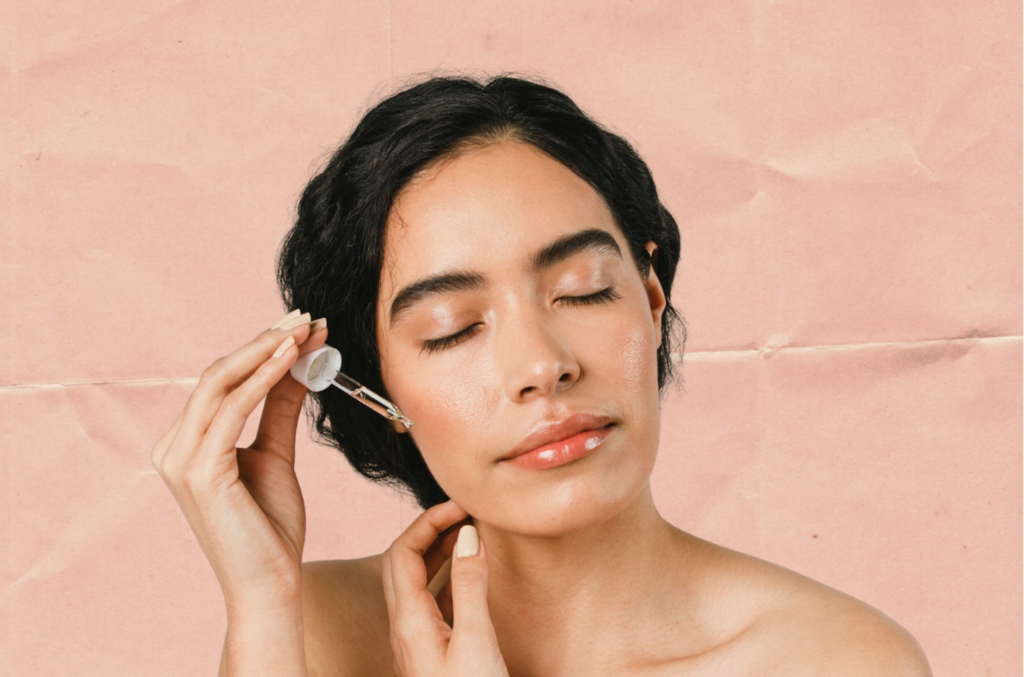Are you feeling like life has become a constant battle against father time’s visible impact? Do you feel like the signs of aging are starting to show, and you want to do something about it? Or, are you perfectly content with the battle scars, fine lines and accumulation of experience that our faces tend to show as we grow?
If you fall into the latter camp, firstly; same! A life led fretting about fret lines isn’t always one well lived or led, after all.
But if you are considering aesthetic intervention, then perhaps you’ve looked into the pros and cons of cosmetic injectables?
Cosmetic injectables are a popular way to potentially promote a more youthful appearance, but there is a lot of misinformation out there about them. With that in mind, here are some of the pros, cons, risks and rewards of cosmetic injectables explored.
What Are Cosmetic Injectables & How Do They Work?
Cosmetic injectables are substances that are injected into the skin with the aim of improving the appearance of wrinkles and other signs of aging.
They work (to a degree that is debated by the scientific community, admittedly) by filling in the wrinkles and lines that form on the skin over time, potentially giving it a smoother, more youthful appearance. In addition, such treatments can also be used to contour the face and add volume to certain areas.

What Are The Most Popular Types Of Injectables & What Do They Do?
There are a variety of different types of cosmetic injectables, including botulinum toxin (Botox), hyaluronic acid fillers, and collagen stimulators.
Botulinum toxin (botox) is a neurotoxin that is injected into the muscles in order to temporarily paralyse them and reduce the appearance of wrinkles.
Hyaluronic acid fillers are compounds that are injected into the skin in order to fill in wrinkles and give the skin a more youthful appearance. One of the leading brands here is Jalupro HMW, the HMV standing for ‘Hyaluronic acid, Medium and high molecular weight’, which refers to the type of hyaluronic acid used in the product (rather than to the high street vinyl purveyor!).
Finally, collagen stimulators are compounds that are injected into the skin in order to stimulate the production of collagen, which may help reduce the appearance of wrinkles.
Read: How to get more collagen in your diet and why you should
How Long Do The Effects Of Cosmetic Injectables Last?
It depends on the type of injectable and which broad scientific consensus you choose to believe. For instance, Botox usually lasts for about three to four months, while dermal fillers can last anywhere from six to twelve months. Botox typically begins to show results within 3 to 5 days after treatment, with full effects visible around 7 to 14 days.
It’s important to keep in mind that the effects of injectables will vary from person to person and that they may not last as long for some people as they do for others. In addition, if you stop getting injections regularly, the effects will eventually wear off. So if you’re looking to maintain the results of your injections, it’s important to be consistent with your treatment schedule.
Make sure to consult with a professional before undergoing the procedure to make sure which option is right for you!
What Are The Benefits Of Using Cosmetic Injectables Over Other Procedures Available?
There are some potential benefits of using cosmetic injectables over other procedures available. Some of the key benefits include:
1. Cosmetic injectables are minimally invasive and can be performed in a doctor’s office. This means they are potentially less risky and may likely cause less discomfort than other procedures.
2. Cosmetic injectables are – relatively speaking – affordable and in the eyes of many provide good value for money when compared to other cosmetic treatments.
3. They are said to produce quick, noticeable results that can last for months or even years.
4. The range of cosmetic injectables allows for the addressing of different treatments.
5. There tends to be little downtime required after treatment, allowing you to get back to your life quickly.

What Are The Risks Associated With Cosmetic Injectables?
There are a few risks associated with getting cosmetic injectables done. In terms of botox, you may experience a headache or flu-like symptoms for around a day after the procedure, as well as bruising and swelling around the site of the injection. If too much botulinum toxin is injected, you may not be able to move the muscles in your face as you could previously, resulting in a somewhat ‘frozen’ look. A temporary weakness and droopiness in the face may also occur.
The risk of other cosmetic injectable procedures may diverge slightly with those of botox, so do ask your practitioner well in advance of having the treatment.
As trusted cosmetics clinics recommend, your practitioner should be on a register which shows they have the training and skill to carry out the procedure. These registers include ‘The British Association of Aesthetic Plastic surgeons (BAAPS)’, The Joint Council for Cosmetic Practitioners (JCCP) and the ‘British Association of Cosmetic Nurses’. If a doctor is involved, they should be on the General Medical Council (GMC) register.
Just as it’s vital that you check your practitioner’s experience and qualifications diligently, so it’s important to assess the accreditation (all clinics and hospitals providing cosmetic surgery must be registered with the Quality Care Commision) of the clinic you’ll be attending, check reviews scrupulously and especially pay particular attention to the negative ones.
How Much Do Cosmetic Injectables Cost On Average & Where Can You Get Them Done Affordably?
Cosmetic injectables can vary in price depending on the type of injection and the area of the body being treated. Botox, for instance, ranges from from about £100 to £350 for each treatment. Dermal fillers start from around £200, whilst the price of collagen stimulators varies significantly.
There are a few ways to get cosmetic injectables done affordably. Many clinics offer package deals that include multiple treatments at a discounted rate. You can also search for clinics that offer loyalty programs or discounts for first-time customers. Additionally, many clinics offer financing options to help make the treatments more affordable.
Are There Any Long-Term Side Effects Associated With Getting Cosmetic Injectables Done Regularly Over A Long Period Of Time?
Some of these side effects include migration of the filler material to other parts of the body, granulomas (small bumps that form as a result of an immune response to the filler), and collagen vascular diseases.
In addition, chronic use of injectable fillers can actually lead to a depletion in the body’s collagen stores. This depletion can cause the skin to sag and lose its natural elasticity over time. So, while injectable fillers may provide temporary results that look good at first, they can ultimately have harmful long-term consequences if used regularly over an extended period of time.
Whilst we’re on the subject, check out these 5 everyday ways you might be damaging your skin, but remember, fine lines or otherwise; you’re beautiful just the way you are.





